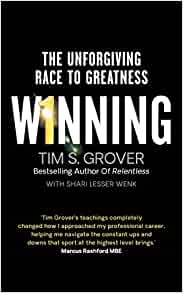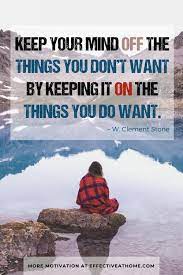Book Review: Winning – Tim S. Grover – Part 1
I read a lot of books on professional development, and love to get insights from coaches so I was fascinated to hear from Tim Grover, who was the strength & conditioning coach for most of Michael Jordan’s Chicago Bulls NBA basketball career, which included 6 NBA Finals.
This book looks at the concept of ”Winning” and thirteen rules for chasing it, and Tim talks about the prices some of his clients have had to pay to try and catch it.
I’ll go through a few rules at a time by highlighting a few passages that captured my imagination so we all have time to digest them and apply them. I’ll share a few more rules in a follow up blog series. Here goes Part 1.
Chapter – The Chase
”Winning is everywhere. Every minute, you have the potential to recognise an opportunity, push yourself harder, let go of the insecurity and fear, stop listening to what others tell you, and decide to own that moment. And not just that one single moment, but the next one, and the next. And before long, you’ve owned the hour, and the day, and then the month. Again. Again. That’s how you win.
It doesn’t happen all at once. But if you can stay with it, if you can survive the battle-field in your mind, if you can tolerate fear and doubt and loneliness… winning would like a word with you.
Winning is the ultimate gamble on yourself. Winning drives you forward.
Sometimes you take those steps one at a time, sometimes two at a time. Some days, you’ll feel so good you’ll want to sprint, other days you’re crawling on your hands and knees, gasping for breath and wishing you’d never started this race.
Winners don’t need to be told how. They figure it out and EXECUTE. REPEATEDLY.
All my clients chased something. A record. A paycheck. A legacy. A ghost.
Because if you’re comfortable with sacrifice and pressure and criticism and pain, if you can learn to focus on THE RESULT instead of always focusing on the difficulty….you can chase winning, fight for it, and defend your right to catch it.
There is no map, no light, no pavement. It’s the road to paradise, and it starts in hell.”
Chapter – Winning Makes You Different, and Different Scares People
”Crazy – combined with the willingness to take a chance – is the secret weapon of Winning.
It was about understanding the difference between knowing how to think, and being told what to think.
They (Bill Gates, Jeff Bezos, Elon Musk) weren’t afraid to think originally, they weren’t worried about what others would think about their ‘crazy’ ideas. That whole BS about thinking outside the box is just that: BS. Winners don’t see the box. They see possibilities.
Every great creation and invention started with people who knew how to think and didn’t allow themselves to be told what to think.
If you always do it the ‘normal’ way, you can be very good at what you do. But if you’re confident and bold enough to believe that ”different” isn’t wrong it’s the difference between lighting your own fire and waiting for someone to light it for you. To me CURIOSITY is the spark that lights the fire.
When you know what do think, you’re ready to compete. When you know HOW to think, you’re ready to win. Coaches and bosses tell you what to think. Doing the work tells you how to think. Your parents show you what to think. Adulthood shows you how to think.
Thinking for yourself creates INDEPENDENCE. If you can’t make a decision without consulting mentors and masterminds…..you’re being told what to think. You may be getting a lot of great guidance and knowledge, until you question it, adapt it, and find out for yourself if it works for you. Knowledge is power, but only if you use it.”
Chapter – Winning Wages War on the Battlefield in Your Mind
”When you’re in the race to win, you spend every night sleeping with the enemy. And that enemy is YOU: the one person who knows all your weaknesses and fears.
Your THOUGHTS keep fighting even when you’re asleep, preparing for the threat of imagined battles that haven’t happened yet. They might happen. They might not.
Stress. Insecurity. Doubt. Envy.
Sometimes it’s a stranger who puts them there. Sometimes it’s someone close to you. Sometimes it’s you. Most of the time, it’s you. Winners can detect these ticking thought bombs and defuse them before they can do any damage.
If you’re procrastinating, you’re DISTRACTED by your own thoughts. We all have some kind of ”To Do” list, Winners have a ”Done” List.
If you want to manage distractions and get control of that battle, you need to put some ROUTINES in place. I don’t want to see you just sleepwalking through your life, just getting by. Blow up that (old) routine, and replace it with something that ENGAGES you mentally and helps you create new challenges and results.
A word on routines – a routine may allow you to set a portion of your journey on autopilot, but to get to your ultimate destination, you’re going to need total control over the outcome. If you’re flying a fighter jet, you can’t leave complete control to the autopilot, you must be ready at all times to override the system and handle the unexpected.
Every routine has to factor in the possibility of UNCERTAINTY. If you prepare only for one scenario, you have no chance of surviving the volatility of real-game conditions.
That’s all for now. Stay tuned for Part 2.
Hope you have found this article useful.
Remember:
- If you’re not subscribed yet, click here to get free email updates, so we can stay in touch.
- Share this post using the buttons on the top and bottom of the post. As one of this blog’s first readers, I’m not just hoping you’ll tell your friends about it. I’m counting on it.
- Leave a comment, telling me where you’re struggling and how I can help
Since you’re here…
…we have a small favor to ask. APA aim to bring you compelling content from the world of sports science and coaching. We are devoted to making athletes fitter, faster and stronger so they can excel in sport. Please take a moment to share the articles on social media, engage the authors with questions and comments below, and link to articles when appropriate if you have a blog or participate on forums of related topics. — APA TEAM





